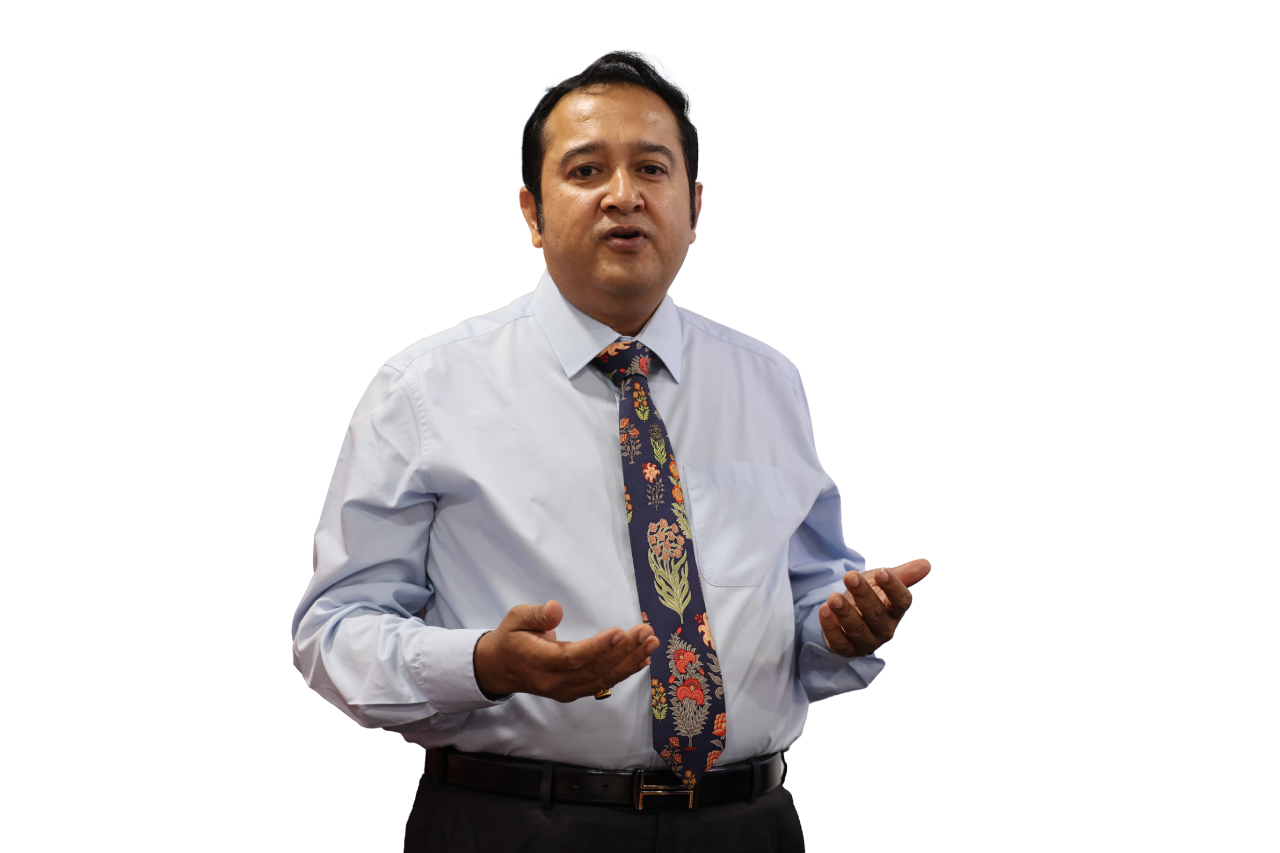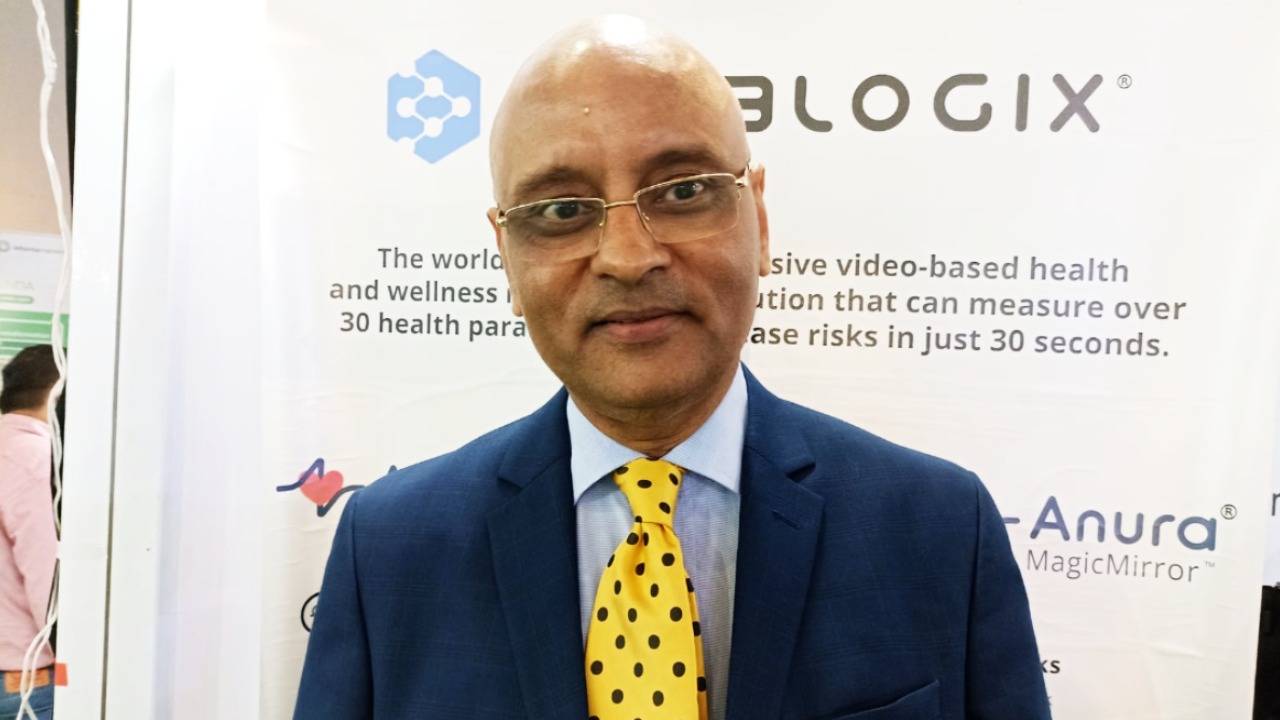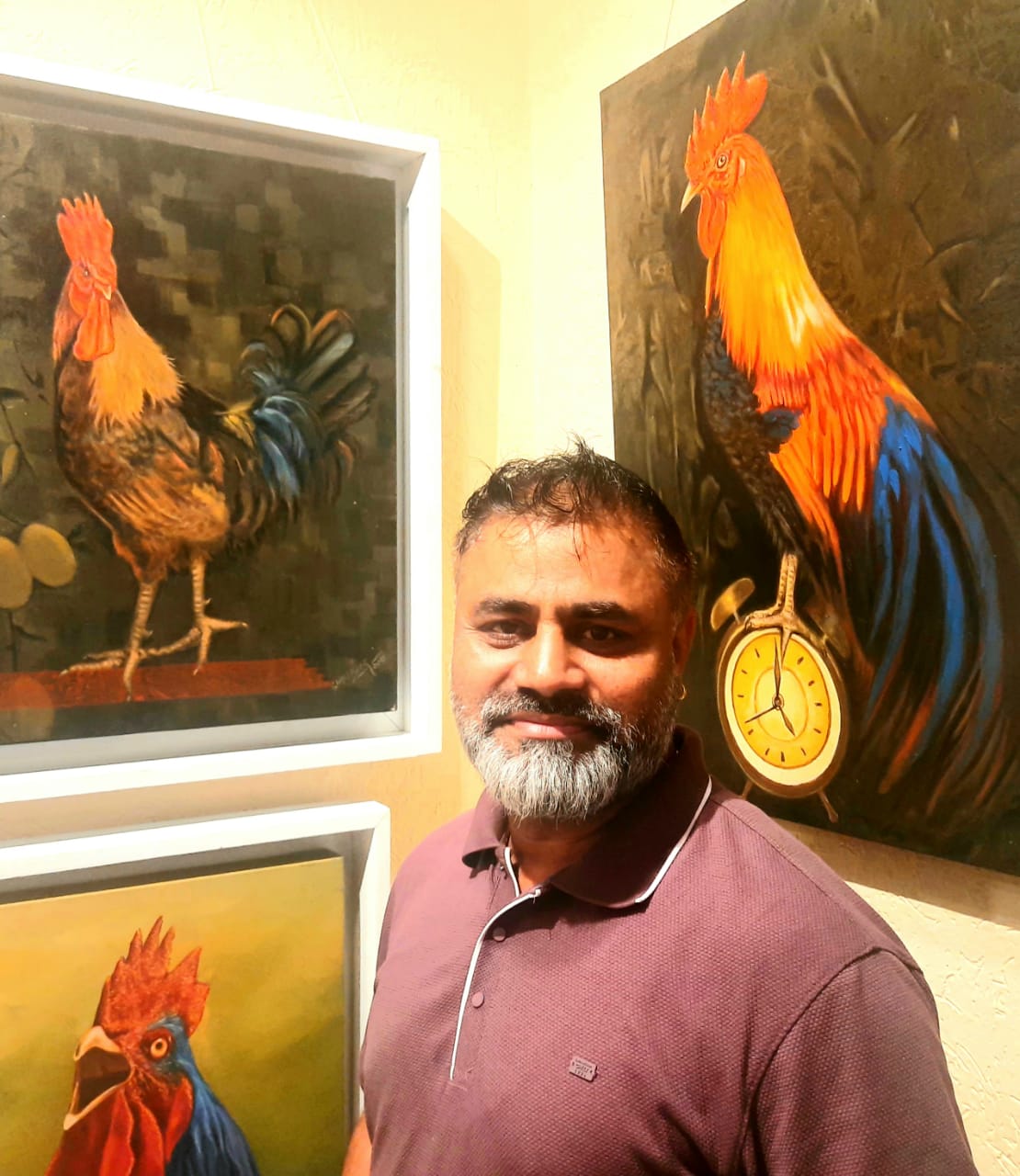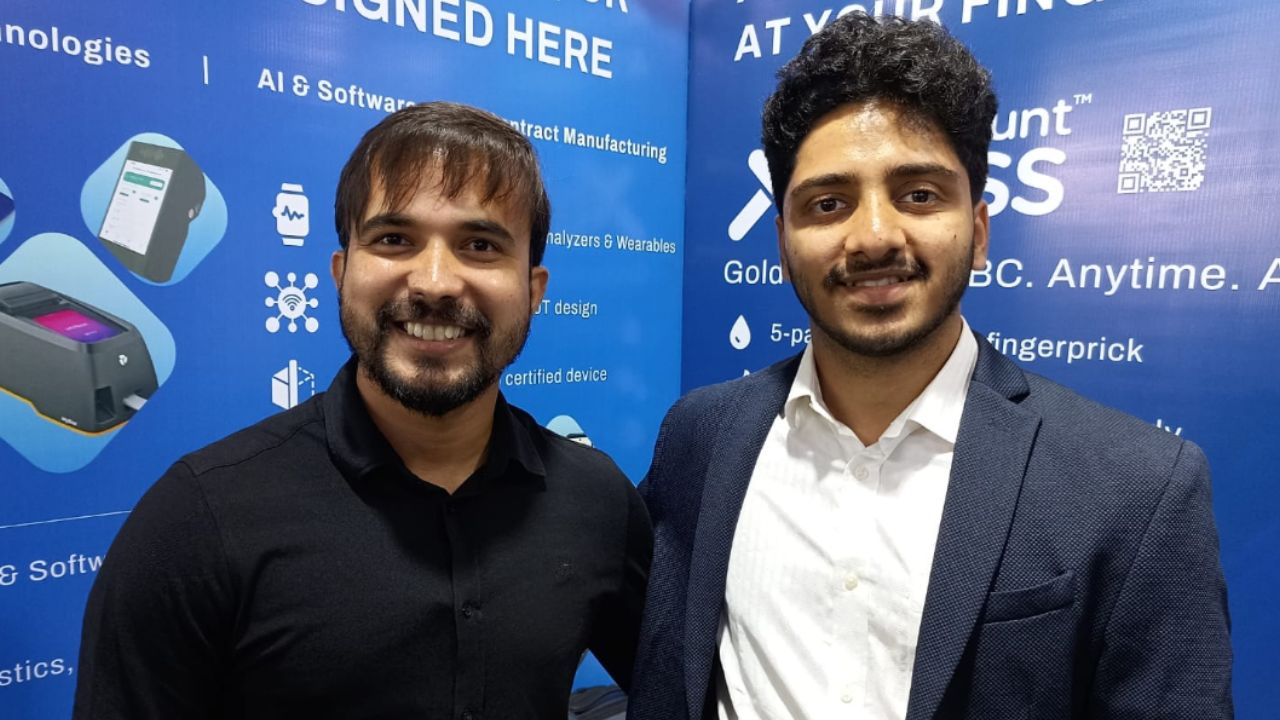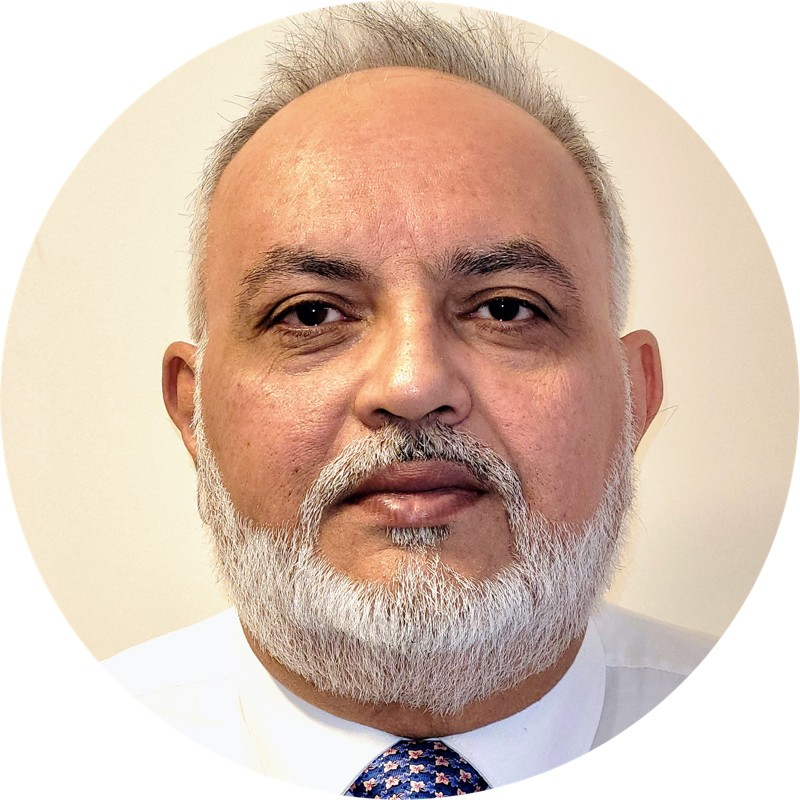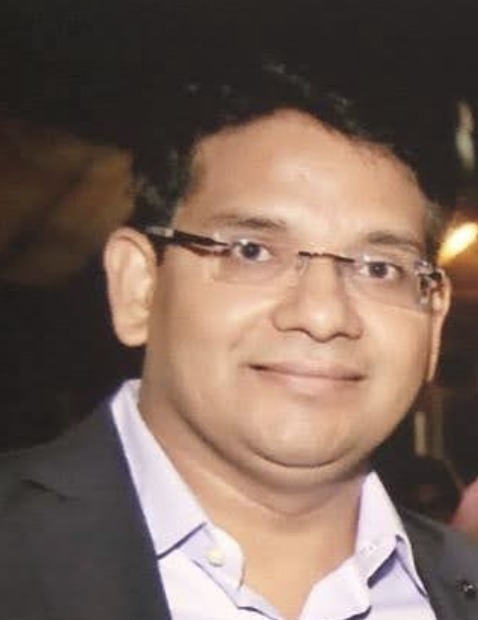Priyadarshi Nanu Pany is the Founder and CEO of CSM Technologies, an eastern India-based technology firm with a forte in empowering governments, their partners, and multilateral agencies through transformative digital solutions. Priyadarshi floated this firm in the late 90s when the Indian IT industry was gaining a foothold in the eastern region. Imbued with a futuristic vision, he could spot the role of technology in enhancing the quality of governance and impacting over a billion lives. His propensity to think big and think ‘out of the box’ has accelerated the growth of CSM Technologies. A huge votary of ‘Digital Transformation’, Priyadarshi believes GovTech will democratize opportunities offered by emerging technologies. The amalgamation of his vision and successful implementation (of solutions) is positioning Digital Governance on the global IT map.
Within CSM Technologies and beyond, Priyadarshi fondly called ‘Nanu’ has kept the flame of innovation glowing. For the past 25 years, has been ceaselessly ideating to enrich existing solutions and develop new tech-driven products. As a leader who walks the talk, he has been mentoring and nurturing cross-functional teams at CSM which now boasts of a pool of over 1600 employees. Besides India, the company has established a footprint in Africa, delivering some monumental ICT solutions. By delivering innovative ICT solutions like land management systems in Maharashtra or digitalizing tea auction trade in Kenya, he has demonstrated his result-driven leadership, spurring large-scale adoption of ICT solutions.
Besides helming an organization that balances skill and scale, Priyadarshi has cemented his credentials as a ‘thought leader’ and a celebrated industry veteran. He is one of the key movers in the NASSCOM Council and an active member of the Confederation of Indian Industry (CII) and other industry bodies. His association with these industry bodies has translated into meaningful policy interventions for the IT and IT industries. As one of the founding members of the Confederation of Information Technology Enterprises (CITE) Bhubaneswar, he is instrumental in nurturing entrepreneurship and pushing the boundaries of innovation in IT.
As an inspiring and successful entrepreneur who has also doubled up as a ‘thought leader’, Priyadarshi has been feted with awards galore for his contributions. He has been spearheading a silent revolution with his pioneering GovTech initiatives. But for all his bevy of achievements, ‘Nanu’ remains the quintessential ‘entrepreneur next door’. Ask him about his success story and he responds, “We are just getting started”.
In an exclusive interaction with The Interview World, Priyadarshi Nanu Pany provides a candid perspective on CSM Tech’s trailblazing role in the development of cutting-edge GovTech products and solutions. He emphasizes the company’s strategic utilization of emerging technologies and delves into the evolving landscape of e-governance in India. The following are key highlights from his insightful interview.
Q: Can you provide an overview of CSM Technologies and its mission in the e-governance space, particularly how it utilizes emerging technologies like AI, Blockchain, Data Science, and Drone Tech?
A: In 25+ years of operations, CSM Tech has earned its stripes as the Government Technology or GovTech pioneer. From our salad days, we sensed a huge opportunity in driving IT in government processes and schemes to transform the face of government to citizen (G2C) delivery. In the dotcom boom days when big IT vendors insanely chased lucrative projects outsourced by the West, we chose GovTech to drive future growth.
Our goal is to build smart applications for government space using emerging technologies.
Artificial Intelligence (AI): CSM Tech uses AI to enhance decision-making and automation in various government processes. AI can help in the analysis of vast datasets, predictive analytics, and the automation of routine tasks. CSM has its own AI framework that helps implementing AI use cases with ease and speed. With the help of AI, we improve citizens’ experience (CX) by providing them with the ability to communicate with the government in their natural language. We use AI to determine the magnitude of citizen problems, as well as their sentiment, and forward them to the relevant authorities for quick resolution. Using AI, we analyze government documents to understand their context and fetch important entities to automate some actions. For doing predictions and time series analysis, we also use AI and forecasting models.
CSM Tech has pivoted to human-AI synergy with the onboarding of Medha K, the company’s first non-human employee. Medha K can fine-tune language models, incorporate human feedback, and employ the most effective learning methods to ensure a seamless experience for everyone. It is a formidable text-generating machine that has been fine-tuned with CSM’s Policy content to understand the intricate functioning of the organization.
Blockchain: Blockchain technology helps governments maintain secure and immutable records, reducing the risk of fraud and corruption. This technology can help in reducing fraud, ensuring data integrity, and enhancing trust in government systems.
CSM Tech has developed ProofChain, an employee records verification system predicated on blockchain technology. This immutable solution enables third-party verifiers to validate the credentials of former CSM employees who worked across locations.
Data Science: Data science is crucial for extracting valuable insights from government data. CSM Tech can utilize data analytics and data visualization techniques to identify trends, make data-driven decisions, and improve public services. CSM has developed and deployed intuitive dashboards using different tools such as SAS, Tableau, Apache Superset and Oracle BI (Business Intelligence).
Drone Technology: Drones have a wide range of applications in the e-governance sector. In mining, we periodically survey the stockpiles and analyze their volume. Keeping track of the production and ensuring compliance with the mining plan helps the government monitor the production.
Q: Emerging technologies often come with challenges. What are some of the key challenges CSM Technologies has faced when implementing AI, Blockchain, Data Science, and Drone Tech in government projects, and how have you addressed them?
A: Usually, governments have stringent regulations and compliance requirements. Designing emerging technology solutions to meet these requirements can be challenging and time-consuming. Another challenge is integrating emerging tech solutions with legacy systems where compatibility issues can impede the adoption of new technologies. For example, integrating an AI-based platform with a legacy ERP system may require significant modifications to the legacy system, potentially resulting in significant costs and delays.
On top of it, governments deal with sensitive citizen data where security and privacy is a top priority. Right from our nascent days in GovTech, we had a vision to transform the citizen experience (CX) by embedding niche technologies into government solutions.
We implement robust data encryption, access controls, and adherence to data protection regulations to ensure the privacy and security of citizen data. We primarily faced data quality issues while acquiring data from the government system for our AI solution. We use data cleansing and normalization techniques to improve data quality. Sometimes, we deploy human reviewers to review the data and correct it.
Adoption of new technologies by government employees for citizen services often bumps into hurdles. To surmount it, CSM Tech offers training and capacity-building programs for government officials to ensure that they are compatible with the use of novel technologies. Also, we tailor user-friendly digital interfaces for the citizens and prioritize unambiguous communication for seamless adoption.
Q: How does CSM Technologies work with government bodies to customize and implement its solutions, considering the diverse needs and complexities of different government organizations?
A: CSM Tech has played a pivotal role in shoring up the government’s digital presence over the years. The diverse functions of various government departments have also provided opportunities to create and implement distinctive solutions. Be it the Productive Safety Net Programme (PSNP) in Ethiopia, the Seed Certification System in Kenya, the Grant Management System in Rwanda, Integrated Tea Trade Auctions in Mombasa, or closer home the automated admission system – Online Facilitation System for Students (OFSS) implemented in Bihar, we have taken utmost care in grasping the client requirement and designed solutions tailored to their requirement.
Q: In what ways does CSM Technologies contribute to making e-governance more accessible to citizens and businesses, especially in remote or underserved areas?
A: E-governance can be made more accessible by developing user-friendly, multilingual mobile apps and web platforms that prioritize simplicity and offline access. Regular user feedback and data-driven improvements are crucial to ensure that e-governance remains inclusive and responsive to citizens in underserved regions.
CSM has been developing bespoke applications for the last 25 years and the development team has matured in the implementation challenges and how to overcome them. Working in GovTech domain, we have understood that the success of any e-governance project depends on the User Experience (UX). This comes from our experience in implementing different technologies for disparate demographics. Our solutions are user-centric, developed in Mobile first design, lightweight architecture, offline-online mode of operation, and high availability solutioning. For example, the automated systems that we designed have delivered outcomes for beneficiary management schemes like PSNP in Ethiopia and the Social Registry Information System (SRIS) where internet connectivity was a challenge in many locations.
Q: Can you share your vision for the future of e-governance in India and how CSM Technologies plans to remain at the forefront of this technological evolution?
A: The vision for the future of e-governance in India is to create a more efficient, transparent, and citizen-centric government that leverages technology to improve service delivery, reduce corruption, and enhance the overall quality of governance. Key elements of this vision include Digital Transformation, Citizen-Centric Services, Data-Driven Decision-Making, Transparency and Accountability, and Inclusive Governance.
CSM Tech plans to remain at the forefront of this technological evolution by adopting the following strategies:
- Innovation & Collaboration: CSM Tech will continue to invest in research and development (R&D) to stay abreast of emerging technologies and innovative solutions in the e-governance space. This may involve collaboration with universities, startups, and other technology partners.
- Customized Solutions: The company will focus on tailoring its e-governance solutions to the specific needs and challenges of different government departments and agencies. Customization and flexibility are key to ensuring the relevance of their offerings. We have our own Low Code No Code (LCNC) framework that helps in implementing solutions with ease and speed.
- Scalability: CSM Tech will design and implement scalable solutions that can grow with the evolving needs of government and citizens. Scalability is crucial for accommodating increasing data volumes and user demands.
- Cybersecurity and Data Privacy: Given the sensitivity of government data, we must prioritize cybersecurity and data privacy in its solutions. This includes adopting the latest security measures and compliance with data protection regulations.
Q: What measures are in place to ensure that your technologies are adaptable and scalable to meet the changing demands of government organizations and emerging trends in technology?
A: CSM Tech places a strong emphasis on ensuring the adaptability and scalability of the technologies to meet the evolving needs of government organizations and to stay aligned with emerging technology trends. We stay updated with the government’s regulations, standards, and compliance requirements and engage with the state actors to understand their specific needs and constraints. At CSM Tech, we have taken care to build flexibility into our tech solutions. We use a modular and scalable architecture that can easily accommodate changes in requirements, technology trends, and government mandates.
That apart, we use open standard technologies that allow our solutions to seamlessly integrate with existing government systems and other third-party applications, making it easier to scale and adapt to changing technology environments. We prefer to work with Cloud technologies where scalability will not be an issue and handle the growing workloads without any disruption. Moreover, we follow agile development methodologies, which allow us to respond rapidly to changing requirements and incorporate new features or technologies as they emerge. Our core modus operandi is also defined by maintaining close communication with government agencies to understand their evolving needs and challenges. This collaborative approach helps tailor solutions to meet specific requirements and adapt to changing circumstances.
CSM Tech has high bets on security and compliance to meet government protocols. Further, we have put in place a continuous monitoring system of technology performance, user satisfaction, and compliance.
Also, we invest in ongoing R&D to experiment with new technologies and explore innovative solutions. This R&D approach allows us to stay at the forefront of technological advancements. We often initiate pilot projects to test the feasibility and scalability of our solutions in real-world scenarios. This approach helps identify any potential issues and provides valuable insights for improvement.
Q: Collaboration is often key to success in the technology industry. Could you discuss any strategic partnerships or alliances that CSM Technologies has established to further its mission and improve its services in the e-governance sector?
A: Collaboration is a crucial factor in the success of an organization in the technology industry, particularly in the context of e-governance. Strategic partnerships and alliances can be a powerful way to enhance a company’s market presence, capabilities, and impact.
Here are some key indicators as to why it is necessary and in which context it is required to have strategic partnerships.
Sharing of Expertise: The realm of technology is extensive and continually progressing. Strategic alliances enable organizations to harness the knowledge and capabilities of external entities when managing e-governance initiatives, which frequently demand a diverse array of technologies and expertise.
Sharing of Resources: Collaboration among organizations can enable them to combine their resources, which is particularly advantageous in the technology industry, where research and development (R&D) expenses can be significant. Through the establishment of partnerships, businesses can achieve cost-efficiency by facilitating the creation and implementation of more robust solutions.
Innovation: Through the cultivation of strategic alliances, organizations can swiftly gain access to fresh concepts and technologies. This proves vital in the rapidly evolving technology sector, where staying ahead of the competition is imperative.
Risk Mitigation: Technology initiatives, particularly in the realm of e-governance, frequently entail substantial risks. Collaborative efforts can effectively spread and alleviate these risks. In cases where one partner encounters difficulties or setbacks, others can step in to offer assistance and support.
Leveraging Data and Insights: By forming partnerships and alliances, organizations can tap into valuable information and knowledge, which can be leveraged to enhance their services, make data-informed choices, and enhance the overall user experience in e-governance applications.
CSM has established partnerships with many Original Equipment Manufacturers (OEMs) such as IBM, Oracle, Tableau, Microsoft, SAS, Informatica, Thales, AWS, Avaya, and more. Additionally, CSM collaborates with consulting partners, value-added distributors, and resource partners to deliver its services in the e-governance domain. To streamline this further, CSM has partnered with IBM and Thales to tackle cybersecurity and data protection challenges. Furthermore, their partnership with IBM enables CSM to address various challenges in the realms of data and AI.
To ensure the security of sensitive data related to mining operations in Bihar, and Chhattisgarh, we employ IBM’s Guardium. Furthermore, a significant portion of our e-governance implementation extensively utilizes Oracle and Microsoft’s databases, cloud services, and business intelligence services. We engage with IT partners in overseas locations where we have a presence to obtain support for project delivery tasks. Together, we strategically craft solutions that are tailored to address local challenges effectively. An illustrative instance of this collaboration is our partnership with Africom, an IT services and Business Process Outsourcing (BPO) company in Ethiopia. We have collaborated with Africom on numerous projects within Ethiopia.


